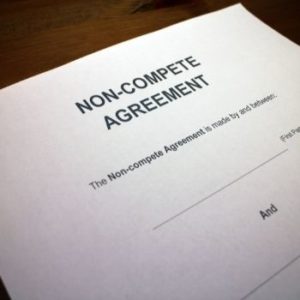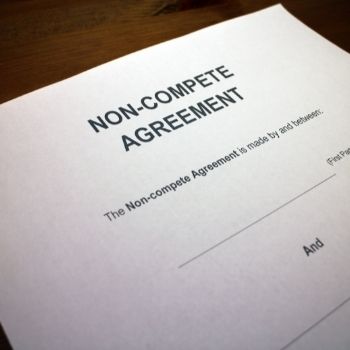 The Ontario Superior Court recently confirmed that employees with non-competition clauses in their employment agreements which pre-date October 25, 2021 are not invalidated by the passing of Bill 27, Working for Workers Act, 2021. Bill 27 received royal assent and came into law on December 2, 2021. Amongst the changes the to the Ontario Employment Standards Act, 2000 (“ESA”), Bill 27 prohibits employers from entering into non-competition clauses with employees, and voids any such attempt, retroactive to October 25, 2021.
The Ontario Superior Court recently confirmed that employees with non-competition clauses in their employment agreements which pre-date October 25, 2021 are not invalidated by the passing of Bill 27, Working for Workers Act, 2021. Bill 27 received royal assent and came into law on December 2, 2021. Amongst the changes the to the Ontario Employment Standards Act, 2000 (“ESA”), Bill 27 prohibits employers from entering into non-competition clauses with employees, and voids any such attempt, retroactive to October 25, 2021.
What was unclear before this decision was how this legislation would impact current non-competition clauses in place prior to October 25,2021.
In Parekh et al v. Schecter et al, 2022 ONSC 302 (“Parekh”), the Plaintiffs purchased a dentistry practice. As part of the sale arrangement, one of the practice’s existing dentists, Dr. Schector, was required to sign an Associate’s Agreement and continue to work at the practice for four years after conclusion of the sale.
Most significantly, the Associate’s Agreement, entered into in January 2020, included a non-competition clause which barred Dr. Schector from practicing dentistry within a 5 km radius of the business until 2023. In late 2021, in contravention of the non-competition provision, Dr. Schector resigned from his position with the practice to work in a different dental office within a 5 km radius, violating the terms of the non-competition clause. Shortly thereafter, the Plaintiffs sought an injunction seeking to enforce the non-competition clause against Dr. Schector. In his defence, counsel for Dr. Schector argued that Bill 27 invalidated the non-competition clause, and that he was consequently free to practice elsewhere without restriction.
In his reasons, Justice Sharma sided with the Plaintiff’s employer, and clarified that the new ESA prohibition against non-competition clauses against employees applies to agreements entered into after October 25, 2021. In doing so, he clarified:
[47] Faced with this express legislative intent to make the ESA amendments applicable as of October 25, 2021, and not earlier, it cannot be said the provisions with respect to the non-compete clause applies to contracts of employment with non-compete clauses entered into before October 25, 2021.
[48] At most, and in respect of this case, the new ESA provisions confirms the public policy against restraint of trade, which has already been accepted in the common law.
After determining that the new non-competition prohibitions under the ESA did not apply, Justice Sharma then analyzed the enforceability of the non-competition clause under the common law and found that it was clear and unambiguous in its language. As a result, Dr. Schector was ordered to abide by the non-competition clause.
Key Takeaways
This is a welcome decision for employers who may have felt uncertain about the enforceability of non-competition clauses in employment agreements entered into prior to October 25, 2021, as well as the enforceability of the agreements themselves. While the court in this case sided with the employer in upholding the non-competition provisions, employers are reminded that generally speaking, courts seldom uphold non-competition clauses, often finding them unreasonable or ambiguous.
Consequently, employers are reminded to review their employment agreements to ensure that agreements dated October 25, 2021 onwards do not contain non-competition provisions except under narrow exemptions provided for under the ESA. Practically speaking, employers should review the language of other restrictive covenants such as non-solicitation clauses, which remain enforceable and are not impacted by Bill 27, to ensure that they are clear, unambiguous, and reasonable with respect to their terms.
Should you have any questions regarding workplace policies for your organization, please reach out to us for assistance at info@rodneyemploymentlaw.com or complete our contact form here.




